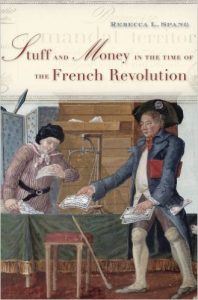I’m late this year with drawing up my longlist. The rules are that the contenders are the books I happen to have read this past 12 months (they don’t have to have been published in 2017), and the choice of the ultimate winner is mine alone. Criteria include: interest and importance, enjoyability/readability/accessibility, and being related to economics (ruling out my history and pop science reading). Links are to reviews on this blog.
With that, and in no particular order, the 2017 longlist is:
The Undoing Project by Michael Lewis
[amazon_link asins=’0141983043′ template=’ProductAd’ store=’enlighteconom-21′ marketplace=’UK’ link_id=’71160bc8-dda2-11e7-b592-abce019d03d7′]
Hall of Mirrors by Barry Eichengreen
[amazon_link asins=’0190621079′ template=’ProductAd’ store=’enlighteconom-21′ marketplace=’UK’ link_id=’7c963a85-dda2-11e7-900b-2f45ff556929′]
The Financial Diaries by Jonathan Morduch and Rachel Schneider
[amazon_link asins=’B01M5IMF5J’ template=’ProductAd’ store=’enlighteconom-21′ marketplace=’UK’ link_id=’877ee4f8-dda2-11e7-bf0b-9b213d2ae746′]
The Wisdom of Finance by Mihir Desai
[amazon_link asins=’1788160045′ template=’ProductAd’ store=’enlighteconom-21′ marketplace=’UK’ link_id=’9f5f9015-dda2-11e7-9e67-07ff59b5f5fc’]
Beating the Odds by Justin Yifu Lin and Celestin Monga
[amazon_link asins=’0691176051′ template=’ProductAd’ store=’enlighteconom-21′ marketplace=’UK’ link_id=’afe2669d-dda2-11e7-93c8-570b42414e18′]
The Pricing of Progress by Eli Cook
[amazon_link asins=’0674976282′ template=’ProductAd’ store=’enlighteconom-21′ marketplace=’UK’ link_id=’b681a684-dda2-11e7-b751-0333d1be144f’]
Adaptive Markets by Andrew Lo
[amazon_link asins=’0691135142′ template=’ProductAd’ store=’enlighteconom-21′ marketplace=’UK’ link_id=’bc87b509-dda2-11e7-9f04-09ebf6d4afc5′]
Economics for the Common Good by Jean Tirole
[amazon_link asins=’0691175160′ template=’ProductAd’ store=’enlighteconom-21′ marketplace=’UK’ link_id=’caa0903b-dda2-11e7-9310-a70b04f63adb’]
Straight Talk on Trade by Dani Rodrik
[amazon_link asins=’0691177848′ template=’ProductAd’ store=’enlighteconom-21′ marketplace=’UK’ link_id=’d2611edc-dda2-11e7-bd7c-b31b367d0892′]
The Attention Merchants by Timothy Wu
[amazon_link asins=’1782394850′ template=’ProductAd’ store=’enlighteconom-21′ marketplace=’UK’ link_id=’d9279697-dda2-11e7-b0de-f5fc8096900e’]
I’ll decide on the winner before Christmas. The Prize is the offer of a fine lunch or dinner should the prizewinner and I find ourselves in the same place. Oh, and the glory.
By the way, my nominations for the best non-econ books I read this year are:
Second Hand Time and The Unwomanly Face of War by Svetlana Alexievich
[amazon_link asins=’0141983523′ template=’ProductAd’ store=’enlighteconom-21′ marketplace=’UK’ link_id=’0ddbdde5-dda3-11e7-a6a5-5fe1e4dbabd2′] [amazon_link asins=’1910695114′ template=’ProductAd’ store=’enlighteconom-21′ marketplace=’UK’ link_id=’148b98ff-dda3-11e7-a984-5d05f5e7fc18′]
The Deluge by Adam Tooze
[amazon_link asins=’0141032189′ template=’ProductAd’ store=’enlighteconom-21′ marketplace=’UK’ link_id=’1a9b1c9b-dda3-11e7-b818-65777a7f07d2′]
East West Street by Philippe Sands
[amazon_link asins=’147460191X’ template=’ProductAd’ store=’enlighteconom-21′ marketplace=’UK’ link_id=’21c0f139-dda3-11e7-b2cf-652d6c92d343′]

